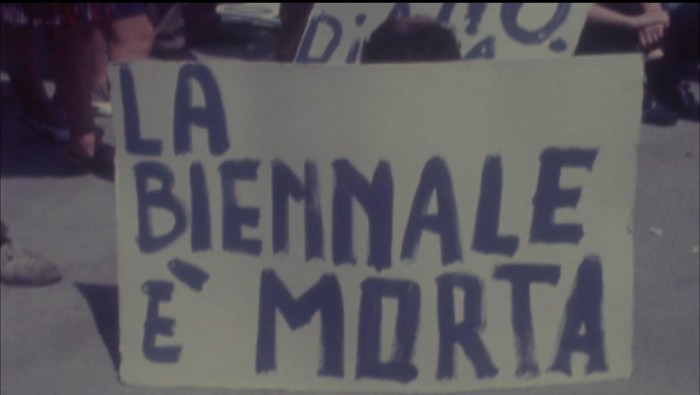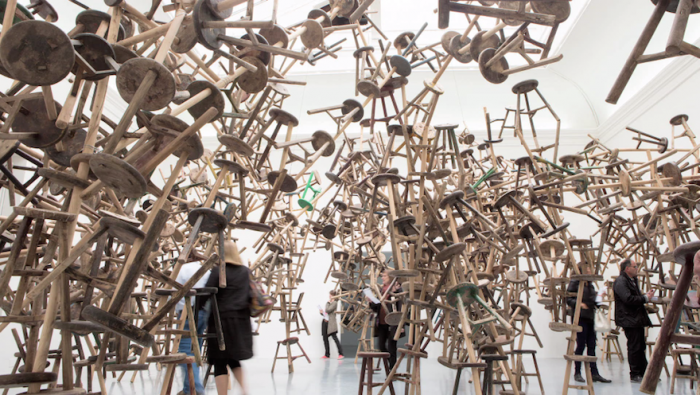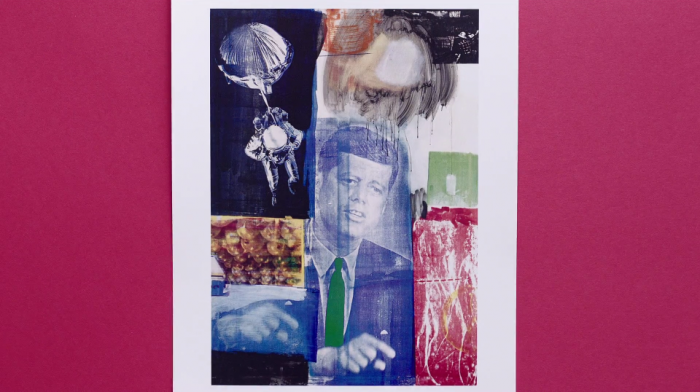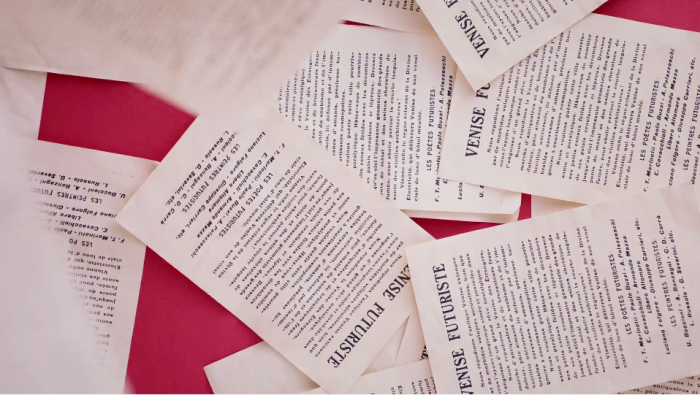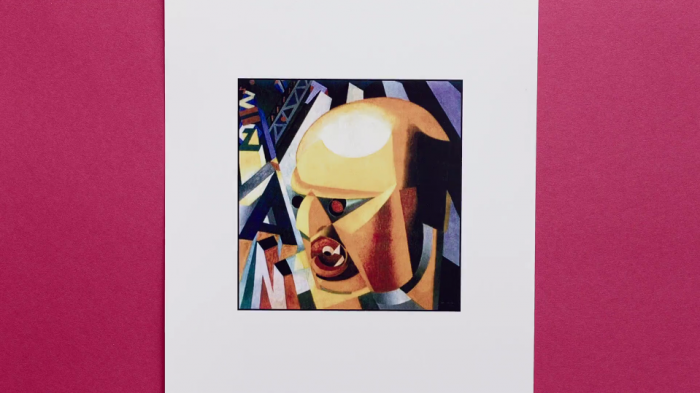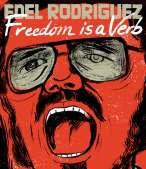If you’ve never been to the Venice Biennale, this short film will make you wish you had.
Directed and narrated by filmmaker, Oscar Boyson, it draws back the curtain on the “Olympics for art”, revealing how its reach goes beyond what some may consider a very insular world to mirror major cultural and political shifts. The 120-year history of the biennale, which opened on 9 May, is peppered with moments of conflict and controversy, such as Marinetti’s release of his influential Futurist manifesto from the San Marco clocktower in 1909.
What would the world be like without the biennale? “Major works by [Yayoi] Kusama, Pollock, Klimt and Modigliani never would have been unveiled,” says Boyson.
“San Marco would be empty, the galleries would be out of business, Venice would be a ghost town,” he says.
Boyson’s rapid-fire narration of the art fair’s long history adds an element of hilarity to this six-minute film. For the uninitiated, the piece does an excellently entertaining job of capturing the biennale’s impact with equal parts irreverence and seriousness.
The national pavilions at Venice’s Giardini park are a study in the reuse of space and its interaction with the art on display. “It’s interesting to see how a nation represents itself,” says South Africa’s own Roselee Goldberg, founder of Performa.
Boyson provides a slightly different interpretation: “Sometimes it’s [the Venice Biennale] not about representing a nation but a moment.”

